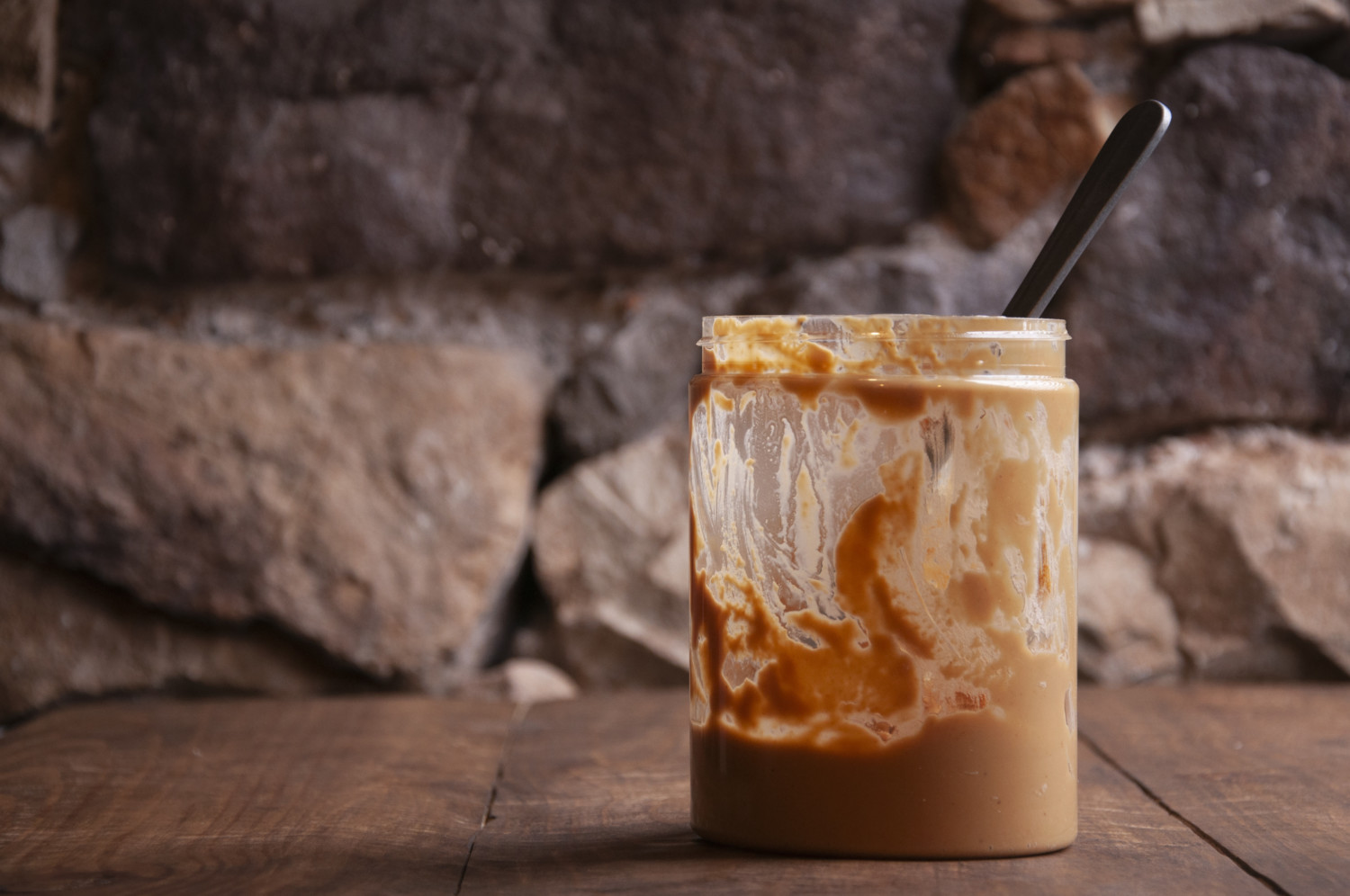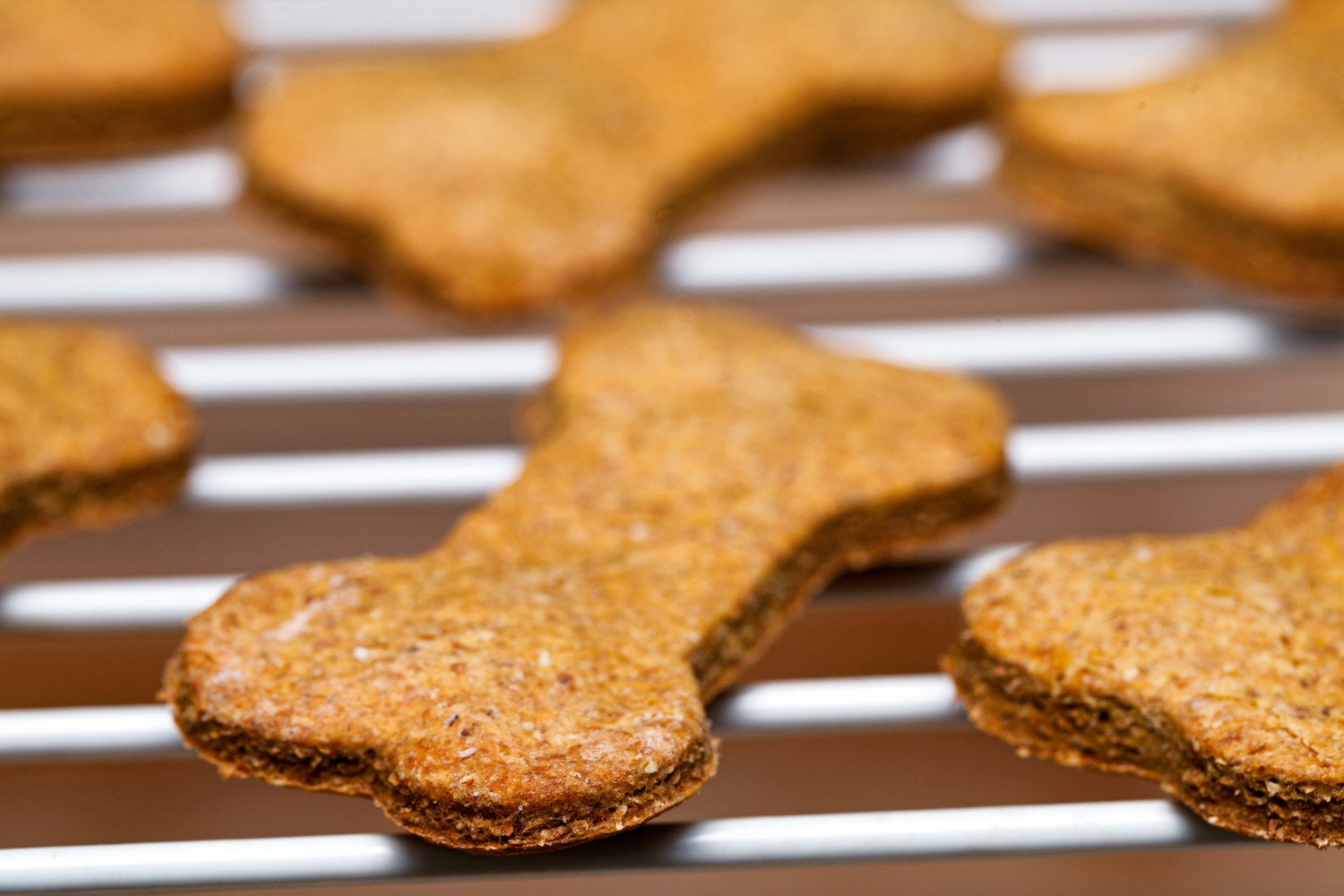The products and services mentioned below were selected independent of sales and advertising. However, Simplemost may receive a small commission from the purchase of any products or services through an affiliate link to the retailer's website.
Peanut butter is a treat that humans and dogs alike can get on board with. It’s creamy and packed with protein, vitamins B and E, and healthy fats. However, before you share a spoonful with your pet, you should first check the list of ingredients. Some ingredients in commercial peanut butter can be harmful for dogs to consume.
Ingredients In Peanut Butter To Watch Out For
Unlike pre-packaged dog treats that are peanut butter-flavored, peanut butter made for humans — including popular store brands like Jif, Skippy and Peter Pan — typically contain added sugar and salt, both of which are not recommended for dogs. Refined sugar is bad for dogs for the same reason that it’s bad for people — it can lead to cavities, obesity and diabetes. Eating salt in large qualities, meanwhile, can cause salt poisoning in dogs. Symptoms include vomiting, diarrhea, excessive thirst and even seizures.
Palm oil, another ingredient that can be found in other popular peanut butters like Justin’s Classic Peanut Butter, should also be avoided. It can act as a laxative and, in some cases, lead to more serious illnesses like pancreatitis.

And then there’s the “all-natural” sugar substitute xylitol that some peanut butter brands now use. Xylitol is highly toxic — and sometimes fatal — to canines. Just a tiny amount of it can make a dog’s blood sugar crash, resulting in disorientation, vomiting, seizures and liver failure.
Brands that contain xylitol include Go Nuts, Co., Krush Nutrition, Nuts ‘N More, Protein Plus PB, and P28. Xylitol is also commonly found in sugarless gum, breath mints and toothpaste.
If you suspect that your dog has eaten xylitol, it’s important to watch him carefully. Poisoning symptoms may come on rapidly â — as soon as 10 to 60 minutes after consumption. â If you witness any symptoms or unusual behavior, you should take your pet to an emergency veterinarian clinic as soon as possible.
Safer Peanut Butter Brands
Instead of the brands named above, pet owners should look for dog-friendly peanut butters such as Whole Foods’ 365 Everyday Value organic peanut butter. Peanut butters like this are both unsweetened and unsalted. In fact, they contain just one ingredient: roasted peanuts.
Of course, peanut butter made specifically for dogs, like Bark Bistro Company’s Buddy Budder, is also OK to give to your pet, although compared to the cost of human-grade peanut butter, it’s a bit pricey.
How To Feed Dogs Peanut Butter
According to experts, it’s best to feed your dog only creamy peanut butter, since crunchy peanut butter contains pieces of peanuts that could pose a choking hazard. Most dogs would be happy to lick the peanut butter off a spoon or your finger, but you can also use it to make your own homemade dog treats.

Or whip up a popsicle treat by stuffing peanut butter inside of a hollow toy like a Kong and then freezing it. Your pet will enjoy slowly consuming the melting treat, lick by lick.
Remember, peanut butter should always be given in small amounts as a treat and not as a replacement for a meal. The American Kennel Club (AKC) says treats should comprise less than 10% of a dog’s daily diet.
Find out what other human foods are safe for dogs to eat.
This story originally appeared on Simplemost. Checkout Simplemost for additional stories.


